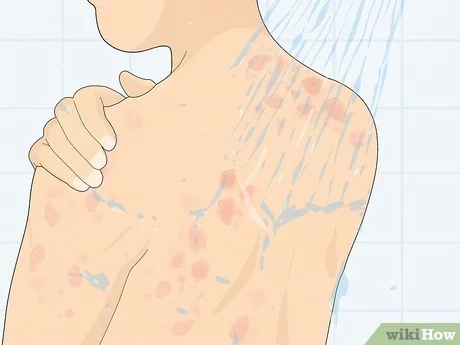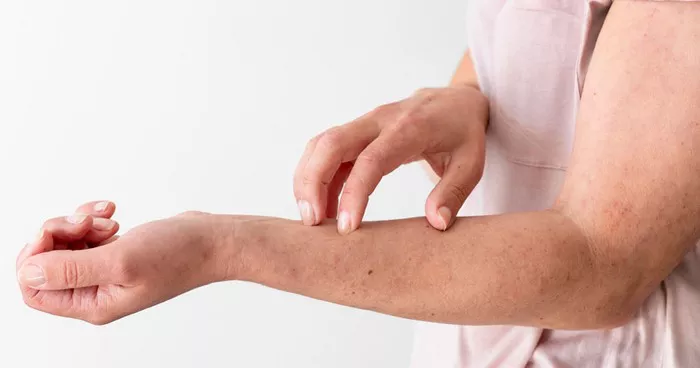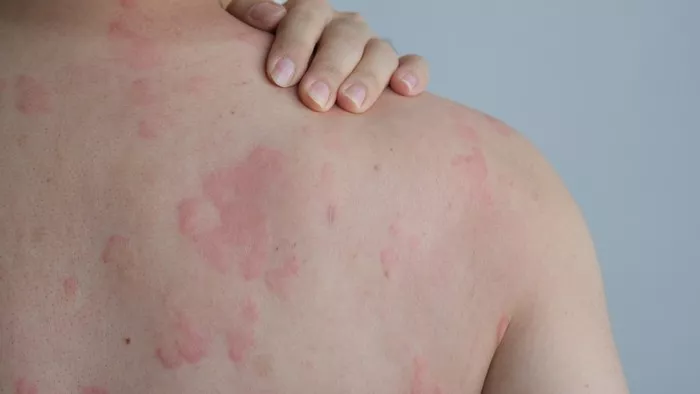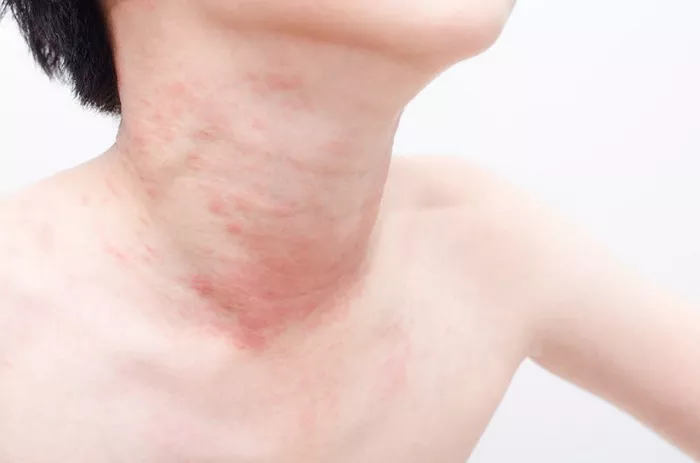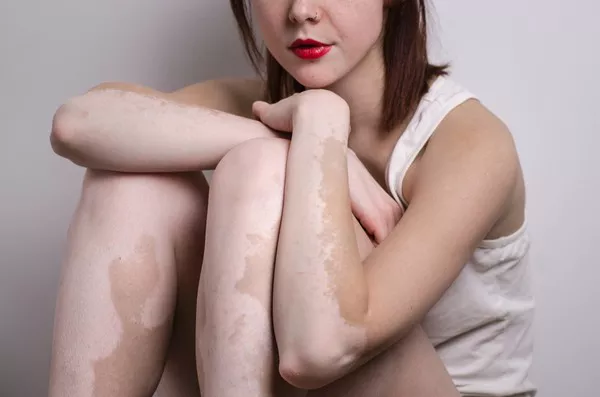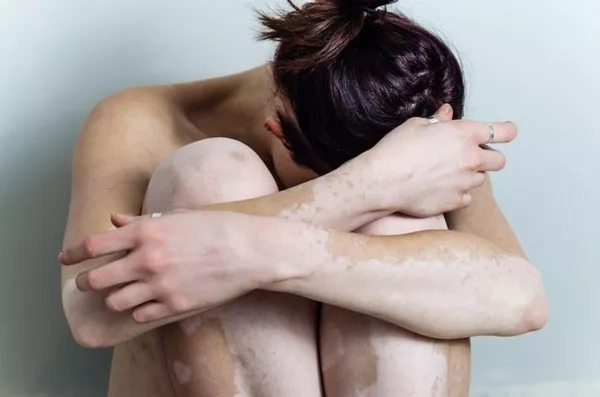Urticaria, commonly known as hives, is a skin condition characterized by raised, itchy welts or bumps. It can be triggered by various factors, leading many to wonder whether it is indeed an allergic reaction or if there are other underlying causes at play. Understanding the relationship between urticaria and allergies is crucial for accurate diagnosis, effective management, and patient education.
Defining Urticaria and Allergies
Before delving into the connection between urticaria and allergies, it’s essential to grasp the fundamentals of each. Urticaria manifests as raised, red, or skin-colored welts on the skin’s surface, often accompanied by itching, burning, or stinging sensations. These hives can appear suddenly and may vary in size and shape. They typically last for a few hours but can persist for days or even recur chronically.
On the other hand, allergies involve an immune system response to specific substances, known as allergens, that are typically harmless to most people. When an allergic individual comes into contact with an allergen, their immune system perceives it as a threat and releases chemicals, such as histamine, triggering symptoms that can affect the skin, respiratory system, gastrointestinal tract, or other organs.
The Role of Allergens in Urticaria
While urticaria can be caused by various factors, including infections, medications, physical stimuli (such as pressure or cold), and underlying medical conditions, allergic reactions remain one of the primary triggers for many individuals. Allergic urticaria occurs when the immune system reacts to specific allergens, leading to the characteristic skin symptoms associated with hives.
Common allergens implicated in allergic urticaria include:
1. Foods: Certain foods, such as nuts, shellfish, eggs, and dairy products, can trigger allergic reactions in susceptible individuals, resulting in urticaria.
2. Medications: Some medications, including antibiotics, nonsteroidal anti-inflammatory drugs (NSAIDs), and certain blood pressure medications, are known to cause allergic reactions that manifest as hives.
3. Insect Stings: Allergic reactions to insect stings, particularly from bees, wasps, hornets, and fire ants, can lead to localized or systemic urticaria.
4. Latex: Latex allergy can develop in individuals who are frequently exposed to latex-containing products, such as gloves, balloons, or medical devices, leading to urticaria upon contact.
5. Environmental Allergens: Pollen, dust mites, pet dander, and mold are examples of environmental allergens that can trigger allergic urticaria in sensitized individuals.
When exposed to these allergens, susceptible individuals may experience urticaria along with other allergic symptoms, such as swelling, itching, redness, and in severe cases, anaphylaxis. Allergic urticaria typically occurs shortly after exposure to the allergen and may resolve spontaneously or with treatment, such as antihistamines.
Distinguishing Allergic Urticaria from Other Forms
While allergic reactions can certainly trigger urticaria in some individuals, it’s important to recognize that not all cases of hives are allergic in nature. Urticaria can also stem from non-allergic causes, which may require a different approach to diagnosis and management. Some forms of non-allergic urticaria include:
1. Physical Urticaria: Physical stimuli such as pressure (dermatographism), cold (cold urticaria), heat (cholinergic urticaria), sunlight (solar urticaria), or vibration can provoke urticaria in susceptible individuals. These reactions are not mediated by allergic mechanisms.
2. Autoimmune Urticaria: Autoimmune disorders, such as lupus or thyroid disease, can be associated with chronic urticaria due to autoimmune mechanisms targeting the skin.
3. Idiopathic Urticaria: In many cases, the underlying cause of urticaria remains unknown, leading to a diagnosis of idiopathic urticaria. While allergies may play a role in some cases, others may not have an identifiable trigger.
Distinguishing between allergic and non-allergic forms of urticaria often requires a comprehensive medical history, physical examination, and sometimes allergy testing or other diagnostic investigations. Healthcare providers must consider various factors, including the timing of symptoms, potential triggers, and associated clinical features, to make an accurate diagnosis and tailor treatment accordingly.
Treatment and Management
Regardless of the underlying cause, the management of urticaria focuses on relieving symptoms, identifying triggers, and preventing recurrence. For allergic urticaria, avoidance of known allergens is crucial whenever possible. Additionally, medications such as antihistamines, corticosteroids, and in severe cases, epinephrine (for anaphylaxis) may be prescribed to alleviate symptoms and manage acute flare-ups.
Non-allergic forms of urticaria may require different approaches to management. For example, individuals with physical urticaria may benefit from avoiding triggering stimuli and using protective measures such as wearing appropriate clothing or using sunscreen. In cases of autoimmune urticaria, treatment may involve addressing the underlying autoimmune condition with immunosuppressive medications or biologic agents.
In some instances, chronic urticaria may prove challenging to manage despite optimal treatment. In these cases, referral to a specialist, such as an allergist, dermatologist, or immunologist, may be warranted for further evaluation and management, including advanced therapies such as omalizumab (anti-IgE therapy) or immunomodulatory agents.
Conclusion
Urticaria, or hives, is a common skin condition characterized by raised, itchy welts that can be triggered by various factors, including allergies. While allergic reactions represent one of the primary triggers for many individuals, urticaria can also stem from non-allergic causes. Distinguishing between allergic and non-allergic forms of urticaria is essential for accurate diagnosis and appropriate management.
Healthcare providers play a crucial role in evaluating patients with urticaria, considering factors such as the timing of symptoms, potential triggers, and associated clinical features to determine the underlying cause and tailor treatment accordingly. By addressing both allergic and non-allergic triggers, healthcare providers can effectively manage urticaria and improve patients’ quality of life.

